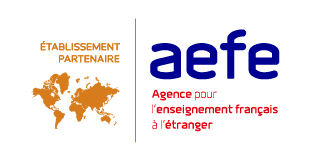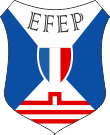Inclusion & fight against harassment
The French European School of Podgorica is an inclusive school.
We provide quality education to students from kindergarten to high school, taking into account the unique characteristics and specific educational needs of each individual.
The school therefore aims to welcome and support all students, to the extent that human and material resources can be put in place to support their education.
Adaptation of courses and support can be done in very diverse situations:
- support for new non-French speaking students who arrive,
- support for students with academic or emotional difficulties, behavioral, high potential students,
- adaptations to be put in place in the event of illnesses with long-term treatment, allergies, disability situations, etc.
The EFEP considers that these students require specific attention from the teachers who support them in their academic journey.
The adjustments and adaptation measures recommended by the French Ministry of National Education are implemented in class, in cooperation with the family.
They can take the form of different schooling plans (PPRE, PAI, PAP) which are reassessed regularly by an educational team.
This support is coordinated by the school's EBEP representative, Ms. Maëva Le Gall.
She works with students, teachers, families and external stakeholders to support schooling projects, in order to guarantee a path adapted to each person.
It can take different forms:
- classroom observations, workshops and discussions with students in class groups,
- small group or individual, work time with teachers,
- help in developing an education project,
- meetings with families,
- establishment of partnerships with external stakeholders.
Our advisor participates in the preparation and writing of the various individual projects of the children concerned (PPRE, PAI, PAP, etc.).
Fight against harassment
Bullying spares no school. We are vigilant and attach the utmost importance to the fight against this phenomenon.
According to psychologist Dan Olweus
"A student is bullied when he or she repeatedly experiences negative actions from one or more students. Negative behavior can occur when a student, or a group of students, causes discomfort to another student, whether physically (hitting, pushing, stamping, pinching, holding others) or verbally (threats, taunting, teasing, and calling names). Negative actions can also be manifested without words or physical contact (grimacing, obscene gestures, ostracism, or refusal to comply with the wishes of others)."
Each case is unique and requires an appropriate response. The usual procedure is as follows:
1 - Listening.
The victimized student, a witness student or a parent contacts a school employee (the CPE, a teacher, the administration, the secretariat, the canteen, etc.) to report the case of harassment.
2 - The evaluation
The school staff “investigates” to assess the situation. How serious? How repeated? Since when? Discussions with the victim student, other students. Meetings with the parents of the victim and the harasser(s).
3 - The answer
The school adapts its response based on the known elements and the situation: how to stop the harassment and protect the student victim? What sanction should be given to the student who is the harasser? How to involve the student who is the harasser in repairing his actions and how to prevent them from repeating them. We organize a follow-up, by regularly questioning the student victim.
During the year, some staff members participate in training provided by the AEFE: discovery of actions such as Anti-harassment ambassadors or peer mediation; training in the concepts of psycho-social skills, emotion management; introduction to the shared concern method, known as the “Pikas method”.


